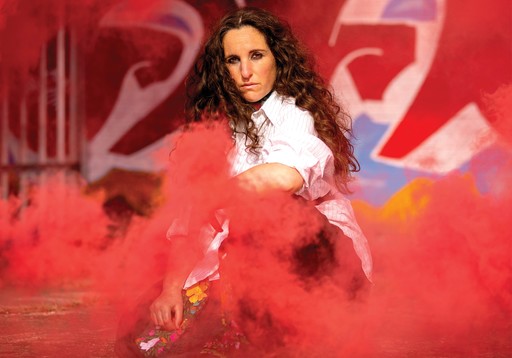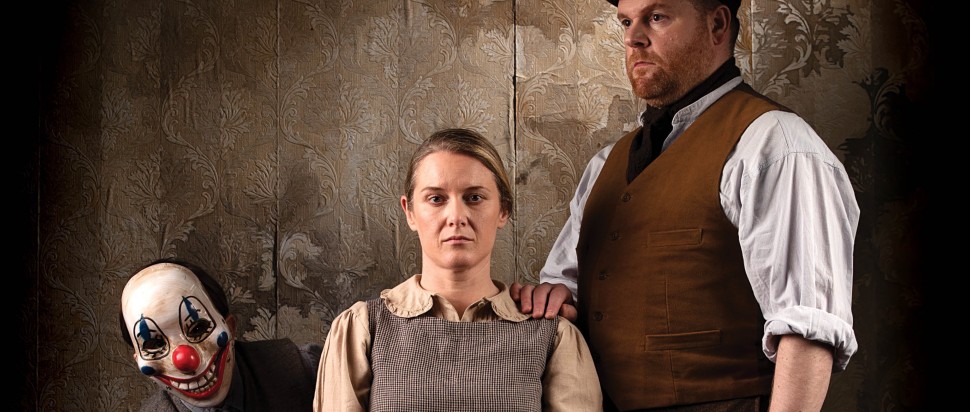Deborah Colker and Alex Reedijk on Scottish Opera
As a new season begins, we talk to Deborah Colker and Alex Reedijk from Scottish Opera about the magic that only opera can provide
When we talk about live performance in Scotland, opera may take a back seat to other forms of theatre. However, Scottish Opera offers a rich, well-established repertoire of productions and a long-standing commitment to accessibility across Scotland. In their 2022/23 season, Scottish Opera welcomes old favourites like Puccini's Il Trittico and Bizet's Carmen alongside the electric and contemporary Ainadamar by Osvaldo Golijov. Brazilian choreographer Deborah Colker makes her directorial debut on Ainadamar, and she plans to bring her decades of movement experience into her work on the operatic stage.
Colker says: "Dance can bring dynamics; it can bring meaning, significance to the gesture. The movement, the choreography will serve the dramaturgy. The most important question is: 'what do you want to say?'" With a libretto by David Henry Hwang, Ainadamar follows the life and death of Frederico García Lorca. It is a queer, heartfelt, and intense rendition of a life cut short by fascism. Even though she is an expert in creating movement, Colker has chosen to work with Antonio Najarro as the flamenco choreographer. She emphasises the importance of working with Spanish artists to tell a Spanish story: "I decided to invite a flamenco choreographer, because of course I can do flamenco movements, but this will be without blood. Without the history inside." The story of Lorca's life and death is acutely relevant to our lives today. Colker says, "His words are our words now. The dream that Margarita, Lorca had, it's our dream. We are fighting against fascism. We are fighting for the right to choose our sexuality."
Ainadamar is just one of many tantalising productions coming out of Scottish Opera this year. Alex Reedijk, Scottish Opera's General Director, highlights the company's commitment to serving as much of Scotland as it can reach. "Scottish Opera was a very early adopter and practitioner of work outside of the main cities," he says. "Our education team, which is the oldest established education team of any opera company in Europe, have been working across Scotland for probably three generations now." In 2021 alone, the company produced over 190 performances in 46 communities across Scotland. Because of their focus on mobility and accessibility, Scottish Opera was better primed than many of its peers to face the COVID-19 pandemic. Reedijk holds that opera works perfectly well outdoors. He says, "It's a really robust art form. It's tough as all hell." This sentiment may seem counterintuitive to those unfamiliar with live opera, but the art form is surprisingly flexible when it comes to presentation.

Justina Gringyte in Carmen. Photo by Scottish Opera
"One of the things we all really, really love is good storytelling," Reedijk says. "If we've done our job properly, then the young people who come to the opera, and indeed everyone who comes to the opera, have been led down a road of good storytelling. They've engaged with the characters, they've felt something for the story that we're telling because we've told it well."
Reedijk strikes at the heart of why we go to the theatre – what we really want, he argues, is a good story. And Scottish Opera is always prepared to provide. Reedijk's comments are all underpinned by the same deep, almost religious commitment to the audience. For Reedijk, good storytelling is an act of care. He speaks of a covenant between artist and audience – one that Scottish Opera is mindful of upholding.
When asked what the opera can offer, especially to first-time opera-goers, Reedjik suggests a transportive experience. "Unlike sitting in front of a television, it's a three-dimensional, live thing with human beings sweating and straining and pushing themselves to their limits to tell their stories, to sing, and to perform, and to act. If we get our bit right, then the audience buys into that three-dimensionality in a way that the flat screen just simply can't. It's something about a shared human experience, isn't it?" Reedijk calls this year's season 'dynamic, exciting, alive' – hopefully, it's enough to tempt even the most reticent viewer. Given the chance, opera has the power to reduce us to our most fundamental human experiences.
Reedijk says: "It's not unknown for an opera to have 1500 people in the audience, 70 people in the pit, 50 people backstage, and one singer on stage holding all of us in the palm of his or her hand. And not a microphone in sight. If we get that right, then we've done something amazing that no other art form can do."
For a full rundown of Scottish Opera's 2022/23 season, head to scottishopera.org.uk
